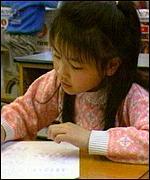5 pages
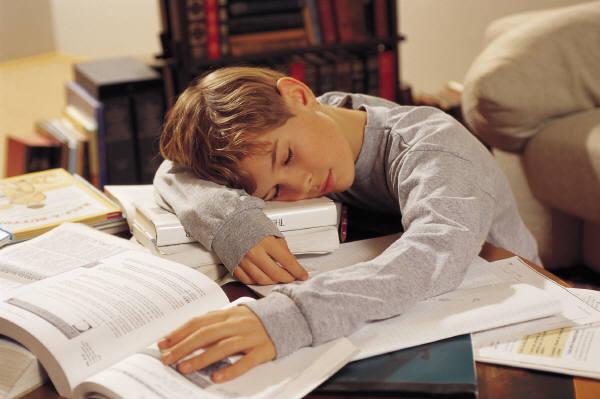
The End of Homework ? – Six Articles - for NHP Parents
Saturday, July 3, 1999 Published at 06:27 GMT 07:27 UK – BBC Online Network
Education
More evidence against primary school homework 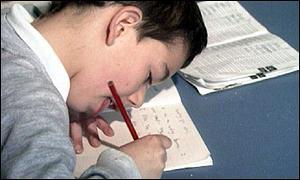
Homework does not improve primary school test results, say researchers
Homework can do primary schoolchildren more harm than good, say researchers.
A study of 11-year-olds at the University of Durham has found that children who are given more homework do not perform better in tests than those who do very little - and often they perform worse.
This is the latest piece of research questioning the government's policy of encouraging more homework in primary schools.
|
|
| Research by King's College, London also found that homework made little impact on pupils' maths skills |
The University of Durham survey of 20,000 pupils has found that those who received only one piece of homework a month were more successful than those who did much more or none at all.
Comparisons of children of similar ability and home backgrounds showed that those given more homework were likely to perform less well in tests for maths, science and English than their counterparts who are only given occasional homework tasks.
Rejecting simplistic views
The results reject the "simplistic view" of homework that more is better, says Steve Farrow, a director of teacher training in the university's education department.
"It shows that there is no clear relationship between increasing homework and improving standards," he said.
The quality of learning is more important than the quantity, says Dr Farrow, with most "quality learning" taking place in the classroom.
There is a wide variation in the effectiveness of the homework set by teachers, he says, and children can struggle to work on their own. There are also problems with the home environment for some children.
This research contradicts the efforts of the government to encourage primary schoolchildren to be given more homework, with the Department for Education recommending that 11-year-olds should have 30 minutes a night, plus additional reading.
The department advises parents that the purpose of homework is "consolidating and reinforcing skills and understanding", but according to researchers there is little evidence that homework is a reliable means of achieving this.
An article written for teachers
By Chick Moorman and Thomas Haller
You know what’s happening with homework in education. Simply put, more homework is being assigned than ever before and it is being assigned to younger and younger children. But is it good? More teachers are beginning to think not.
Many professional and thoughtful educators across the country are altering their homework policies. Some are assigning less. Others are making sure their homework only involves projects that connect the school and family, such as having the student teach a family member what he or she learned or interview parents about their life experiences. Some tell parents that the child should only work on homework (infrequently assigned) for 20-30 minutes. At the end of that time the child is to stop, regardless of where he or she is in the assignment. Still other teachers are assigning no homework at all.
Since this altered homework stance is often new to the parents, an explanation is in order. When you follow what you know in your heart is best for children and it bucks traditional practice or even school policy, it is essential that you have your rationale ready to go.
Look over the list below, modified from one used by a fourth-grade teacher in Seattle, WA. Pick the suggested responses that make sense to you. Use them to create your own personal response to those who are asking you to do what is not always in the best interest of children or conducive to developing an intrinsic motivation for children to keep on learning.
1.) School is the only place in our society where a person must work all day and come home and work some more. It is like working a double shift. Would you put up with that?
2.) Family conflict is increased because of the nagging and yelling or simple frustration it often takes to make sure homework gets done. The struggle our children are putting up to resist inappropriate use of homework is divisive to families.
3.) Homework erodes family time—the opportunity to do things together to build family solidarity. Time to eat together, tell stories, play checkers, go for a bike ride, and hang out together is being lost. Homework assignments show disrespect for the family’s right to decide how to spend their free time together.
4.) Homework leaves less time for nonacademic learning, including reading for pleasure, collecting bugs, visiting a zoo, or trading baseball cards.
5.) Homework could well be the number one inhibitor of our children developing a desire to go on learning. It can extinguish curiosity and the love for learning.
6.) Homework is often so distasteful to children that parents resort to offering incentives, praise, and bribes for doing it. This further teaches children that learning is not something to do for learning’s sake, but because you get rewarded for it.
7.) Just because kids have homework to do at night does not mean any learning is taking place. In fact, homework often drives children away from learning the intended lesson. What they learn is that learning is distasteful.
8.) Evidence does not exist demonstrating that homework has any academic benefit to children in elementary school.
9.) There is no research that shows that homework builds responsibility and good study habits. Many times children develop poor work habits when it comes to doing homework. Surface-skimming, procrastination, and daydreaming can occur more often than the desired habits.
10.) Self-responsibility is more about learning to manage freedom than it is about practicing compliance with other-directed assignments that please the adult. Children do not learn to act responsibly when they are tightly regulated.
11.) Giving homework to children who already know how to do it is a waste of their time. Giving the same assignment to students who do not know how to do it produces one of two results. Either these students feel stupid and give up, or they sit at the study table and do the assignment all wrong. In that case, they don’t feel stupid until the next day, when the homework is evaluated.
12.) My job as a professional educator is to encourage children to love learning, not to get them ready for unpleasantness (tons of homework) in the future. People don’t typically learn how to deal with unhappiness by giving them a lot of unhappiness on which to practice.
13.) Pleasure reading and reading for meaning are two of the casualties of homework. Who would want to pick up a book and read after doing an hour or two of homework?
14.) Since there is clearly no evidence that shows homework is beneficial, I will err on the side of less rather than more.
Is it time for you to take a stand against homework? Have you recognized the negative effects it has on students but have not been sure what to do about it? Do you need some encouragement?
Please feel encouraged. There are teachers all over the world who feel the same way you do. These teachers are attempting to help restore our children’s love of learning by cutting back on homework, or even eliminating it altogether. Please join them.
Thomas Haller and Chick Moorman are the authors of The 10 Commitments: Parenting with Purpose. Chick has also written Spirit Whisperers: Teachers Who Nourish a Child’s Spirit. Chick and Thomas are two of the world’s foremost authorities on raising responsible, caring, confident children. They publish a free monthly e-zine for parents. To sign up for it or obtain more information about how they can help you or your group meet your staff development needs, visit their websites today: www.thomashaller.com or www.chickmoorman.com.
Also by Chick Moorman and Thomas Haller: Is Your Child’s Homework Worth Doing? and Research findings to support their position.
By Jane Bluestein, Ph.D.: What About Homework? and Making Homework WORK: Building Flexibility into Your Homework Policy

USA - Facebook Campaign
Apr 4, 2008
Has homework reached critical mass in Toronto?
Families across the greater Toronto Area will be on the edge of their seats in the upcoming weeks as they wait to hear whether or not Toronto District School Board trustees will make the groundbreaking decision to ban or restrict homework.
The fact that homework could be on the legislative chopping block at all is not that much of a surprise. Homework has been a thorn in the collective sides of parents for some time now as the sheer amount of homework that children face each night has been wrecking havoc in otherwise happy households.
Kids are stressed by the volume of homework they face every night, and parents aren’t too happy about it either.
Homework amounts seem to increase in direct relation to teacher cutbacks and classroom sizes. School boards are expected to do more with fewer resources and classroom sizes are rapidly expanding giving teachers less time to teach materials during class, which means that in order to meet grade standards, more and more homework is assigned to the student. Unable to teach the curriculum in class, teachers send it home as homework. Now legislators want to eliminate homework entirely.
Something’s gotta give.
No single set amount of time for homework will work either because kids still need some measure of individualized attention. They still need to learn how to prioritize tasks, how to be organized, and how to make sense of the work that they’ve been assigned.
How do you feel about the potential homework ban?
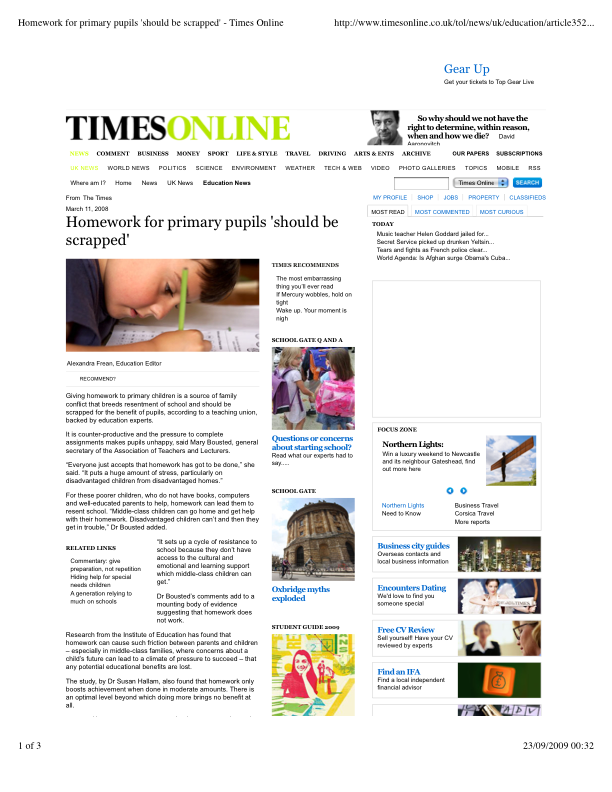
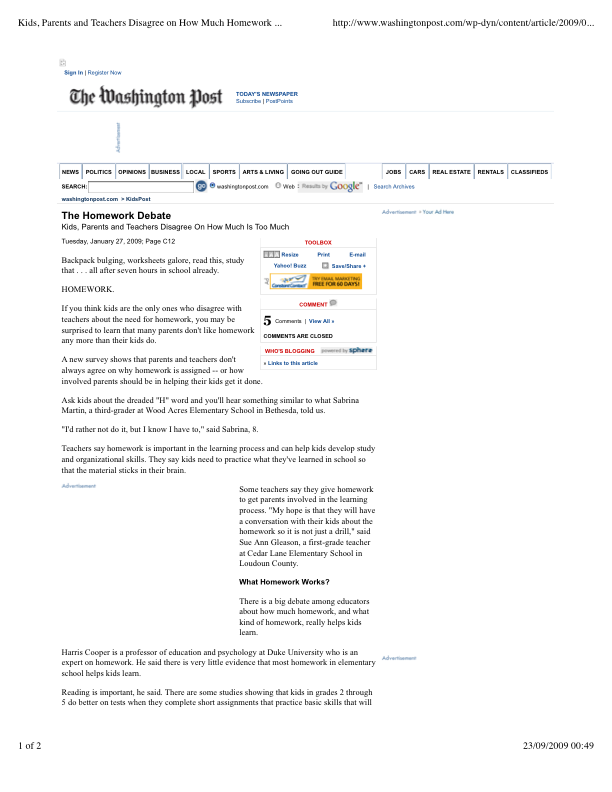
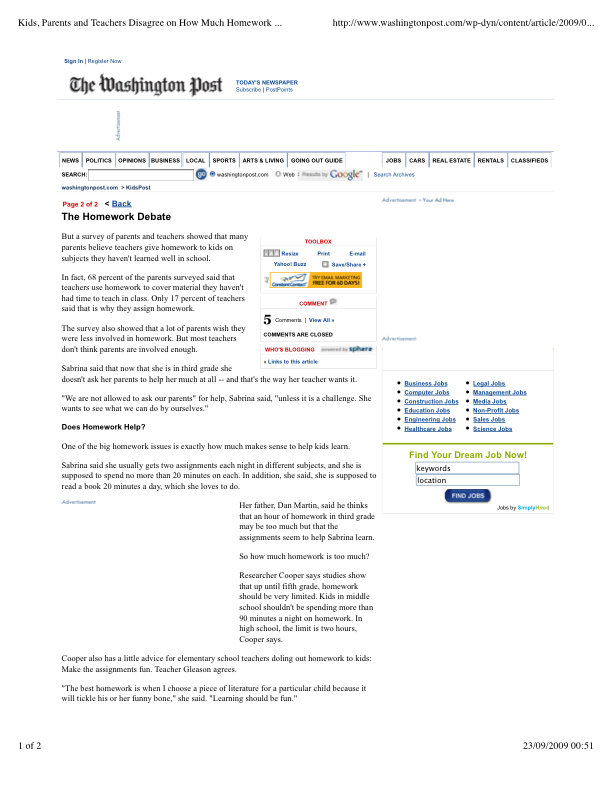
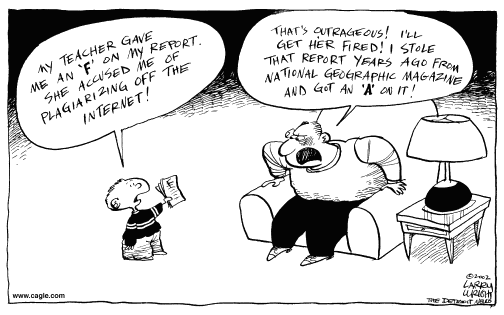
From Times Online
October 20, 2008
Why homework doesn't work The lives of young children should be about much more than the latest school exerciseSarah Ebner
Let me nail my colours to the mast right from the start: I’m not the biggest fan of homework in primary schools. And that’s in a personal (I’m the mother of a six-year-old) and professional (I edit the education blog, School Gate ) sense. I’m simply not convinced of the benefits.
That’s not to say I subscribe to the “all homework is bad” mentality. I’m happy for my daughter to bring home spellings, and also thought that in Reception and Year 1, a school reading book was a necessity. However, I’m not even sure this is needed now that my daughter can read fluently. She loves to read a book of her choosing, but is reluctant to do so when given something by her teacher. Whatever you believe about homework, surely it shouldn’t risk switching a child off from reading or learning?
Almost all of the work young children bring home could - and I think should - be done in the classroom. This way their time at home could be spent playing with friends or learning in another way by reading a book, visiting a museum, playing a sport or practising a musical instrument. They could even (let’s push the boat out) have free time to do whatever they liked (within reason). I have spent a good deal of time looking at the research on this issue and remain unconvinced that primary school pupils should follow a long day at school with more work. A child’s early years should be about so much more.
I’m not alone in my views. Homework is a topical and controversial subject, in primary and secondary schools, both here and around the world. The British government has long been a fan and recommends how much homework children should be given depending on their age. However, various schools are now railing against this and cutting back on the homework they set. The Association of Teachers and Lecturers is actually campaigning for homework to be scrapped in primary schools and limited in secondary.
The need for free time and time to play is one reason why I broadly agree with this. Another is the fact that so much homework (particularly for younger children) depends on parental involvement and, often, access to the internet or other resources.
Not all children have an enthusiastic or even available parent, nor do they have technology at their fingertips. There have been suggestions that children from lower-income backgrounds don't benefit as much from homework because they have fewer resources and less assistance.
Expert Susan Hallam has also found that, although homework does have some benefits, it also creates anxiety, boredom, fatigue and emotional exhaustion in children, and can damage family relationships. Isn’t this list long enough for us to realise that homework just doesn’t work?
